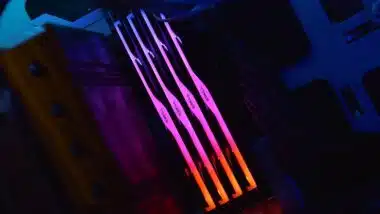 Amid a whirlwind of increasing medical and safety concerns, South Korea has decided to ban its use of gadolinium MRI dye taking effect at the end of 2018.
Amid a whirlwind of increasing medical and safety concerns, South Korea has decided to ban its use of gadolinium MRI dye taking effect at the end of 2018.
Regulators in South Korea have decided to make this announcement over recent apprehensions that the dye might accumulate in the brain. Meanwhile, lawsuits filed in federal courts in the United States continue to accumulate.
Thegadolinium MRI dye ban affects linear agents such as Magevist, Optimark, and Omniscan, plus 13 others. In addition to other international localities raising their concerns over the dyes, European regulators have also suspended their use over similar concerns. Yet, countries such as Canada, Japan, Switzerland, and the United States still allow the use of gadolinium MRI contrast dyes.
Overview: Gadolinium MRI Dye
Gadolinium is a heavy chemical element associated with MRI medical scans. It is injected just before an MRI to help improve and make clearer the visibility of blood vessels, organs, and tumors on imaging scans.
Eight linear agents were approved for use by the U.S. Food and Drug Administration (FDA). They include OptimMARK, Magnevist, Eovist, Multihance, and Omniscan. Other gadolinium agents also include Gadavist, Prohance, and Dotarem.
A warning was released by the FDA advising that people with end-stage kidney disease were more prone to develop a debilitating condition known as nephrogenic systemic fibrosis (NSF). However, a growing body of research has concluded even more serious complications. Reports maintain that those without normal kidney function are more prone to retain the chemical in their bodies for months or years.
Gadolinium deposits can even settle in the brain for a very extended time after an MRI. This has led the FDA to add additional warnings advising of these side effects in December 2017.
Although the FDA has yet to state the specific adverse side effects of having gadolinium deposits settle in the brain and/or body, they have asked health care professionals to note who are more prone to be at risk for gadolinium retention. Patients include:
- Children
- Pregnant women
- Patients that need lifetime doses
- Patients with inflammatory conditions
Gadolinium manufacturers are also being ordered by the FDA to conduct animal/human clinical studies to better evaluate gadolinium adverse side effects and complications.
Among the risk for gadolinium deposit retention, adverse side effects linked to gadolinium include:
- Memory impairment
- Bone and joint pain
- Spongy or rubbery skin
- Thickened and painful ligaments
- Tightness in the hands and feet
- Headaches
- Cognitive difficulties or “brain fog”
- Pain and burning sensation in the arms, legs, and torso
Manufacturers are already facing mounting lawsuits by victims who have developed NSF. However, other increasing legal claims are being filed by patients who say they have developed an illness known as gadolinium deposition disease; which they allege is caused by the retention of the dye in organs and the brain.
Symptoms for gadolinium deposition disease include:
- Headaches
- Muscle vibrations, needles and pins sensations
- Burning of the skin
- Bone and joint pain
- Thickening, pain, and discoloration in the skin
Join a Free Gadolinium Toxicity Class Action Lawsuit Investigation
If you or a loved one developed gadolinium toxicity after having an MRI with gadolinium contrast, you may be eligible to file a gadolinium MRI lawsuit against pharmaceutical companies. Fill out the form on this page for a FREE evaluation of your eligibility.
ATTORNEY ADVERTISING
Top Class Actions is a Proud Member of the American Bar Association
LEGAL INFORMATION IS NOT LEGAL ADVICE
Top Class Actions Legal Statement
©2008 – 2026 Top Class Actions® LLC
Various Trademarks held by their respective owners
This website is not intended for viewing or usage by European Union citizens.
Get Help – It’s Free
Join a Free Gadolinium MRI Lawsuit Investigation
If you qualify, an attorney will contact you to discuss the details of your potential case at no charge to you.
PLEASE NOTE: If you want to participate in this investigation, it is imperative that you reply to the law firm if they call or email you. Failing to do so may result in you not getting signed up as a client or getting you dropped as a client.
E-mail any problems with this form to:
[email protected].
Oops! We could not locate your form.












